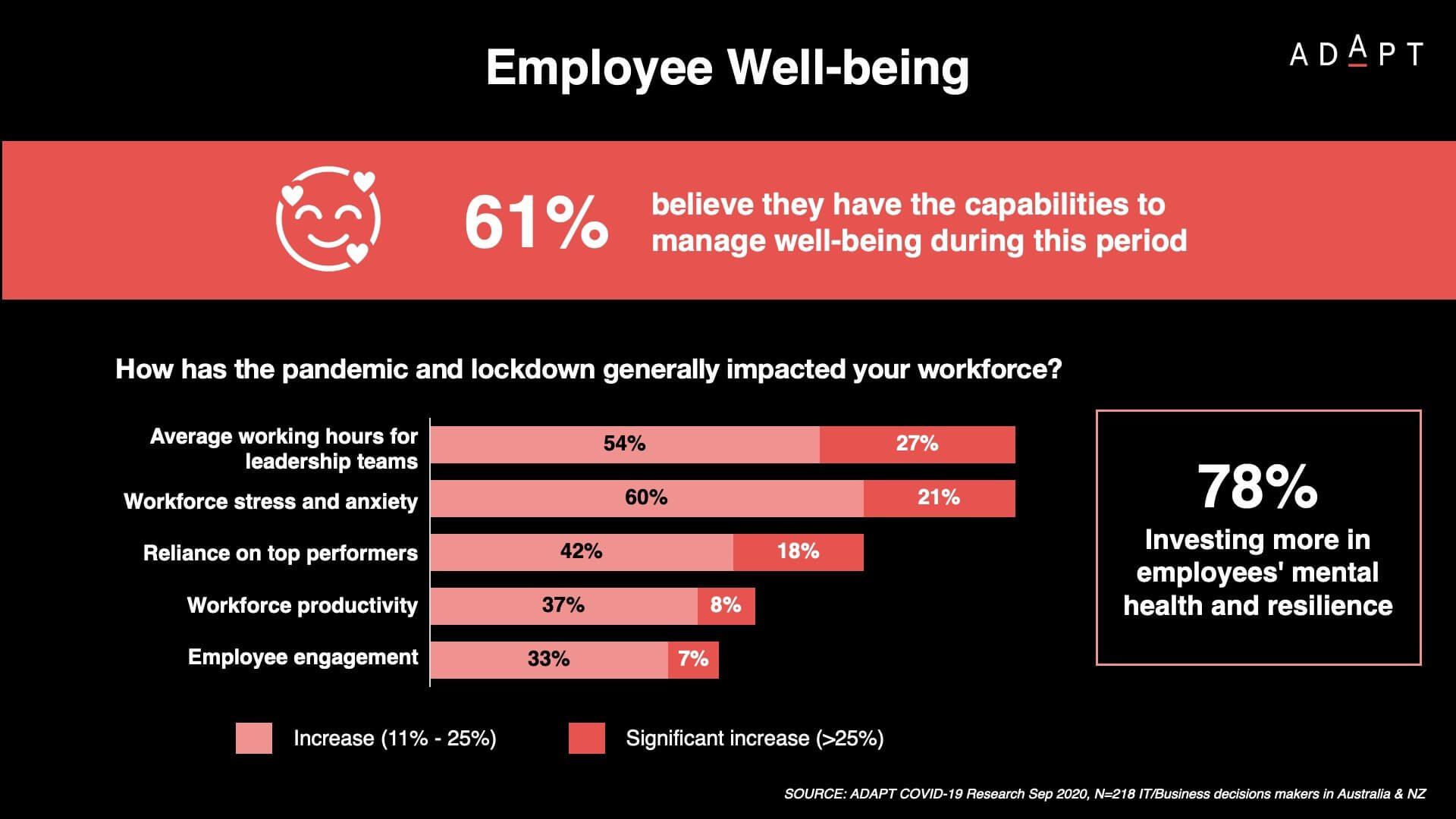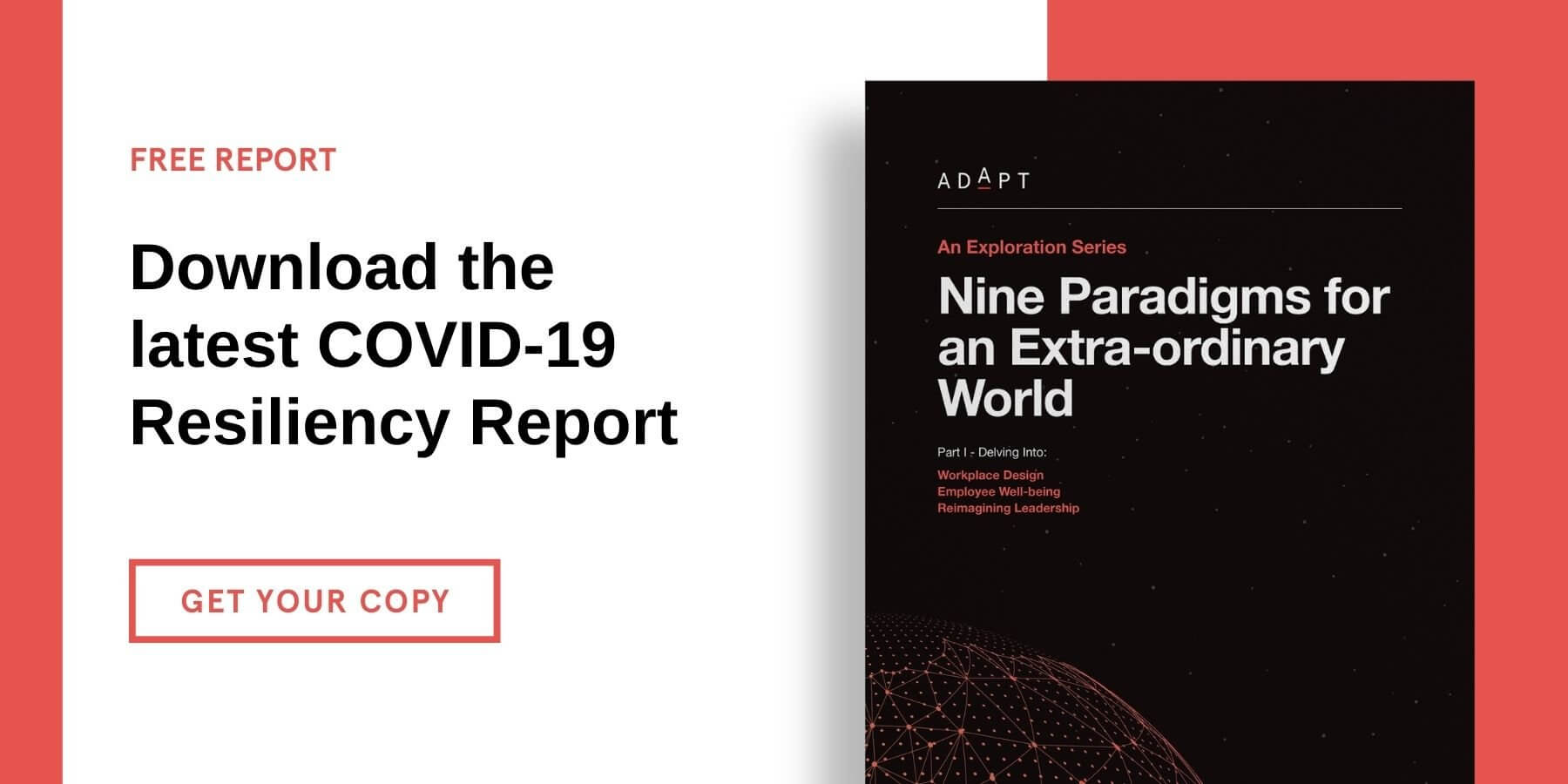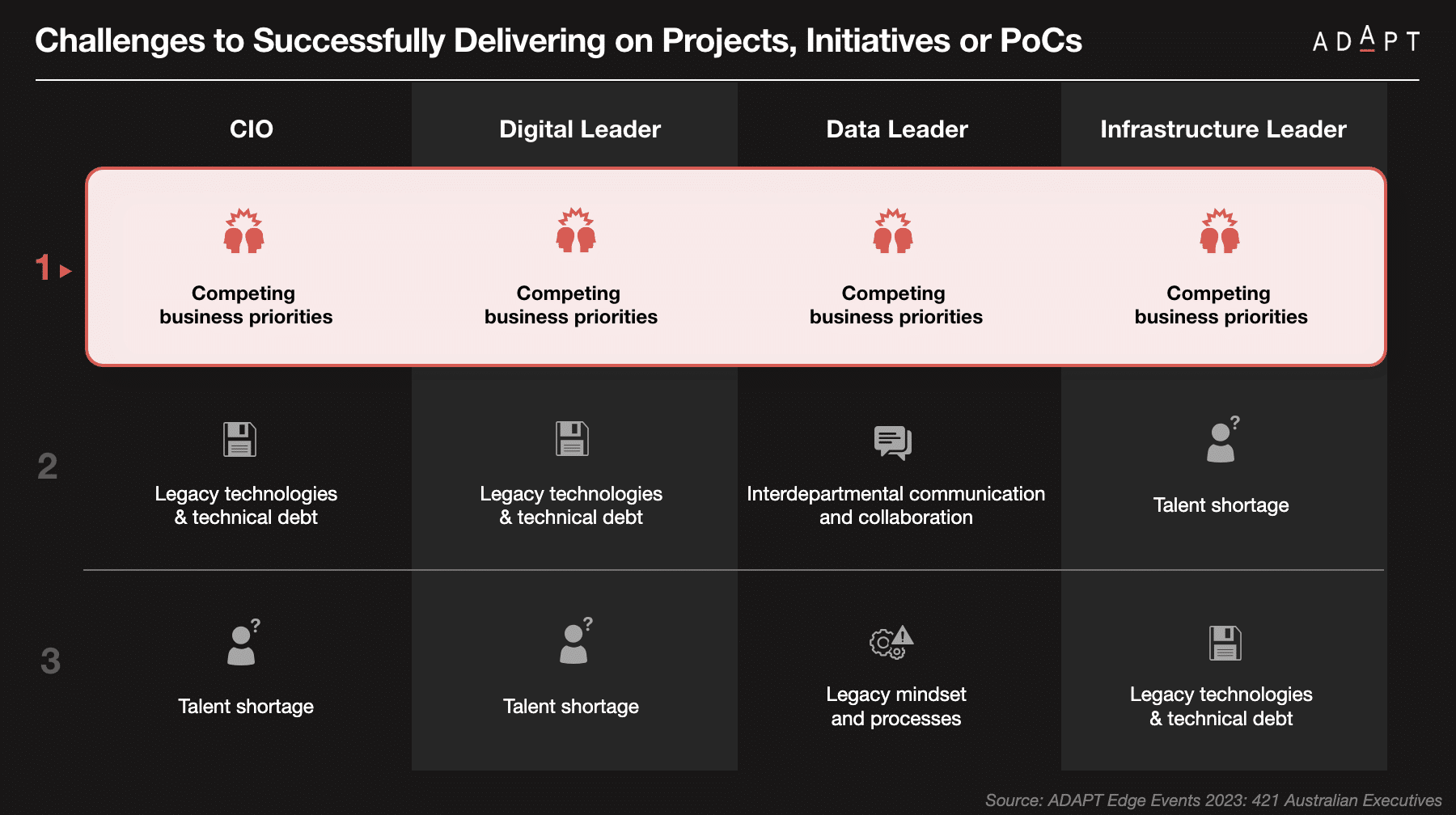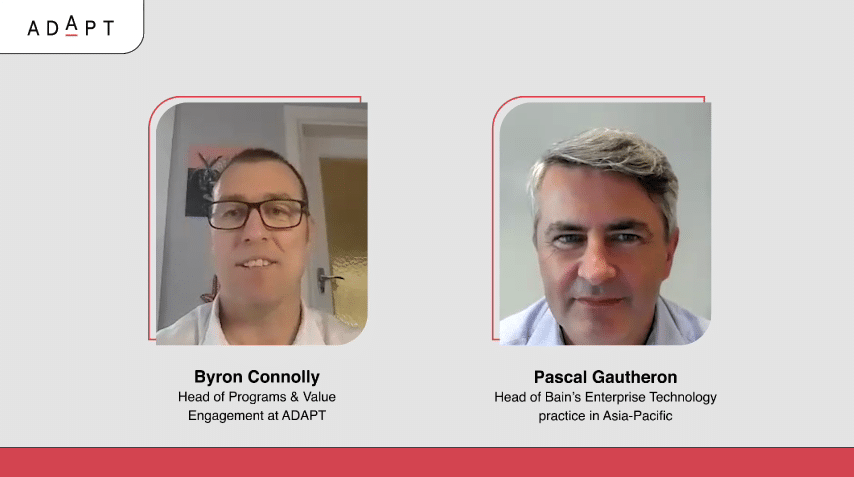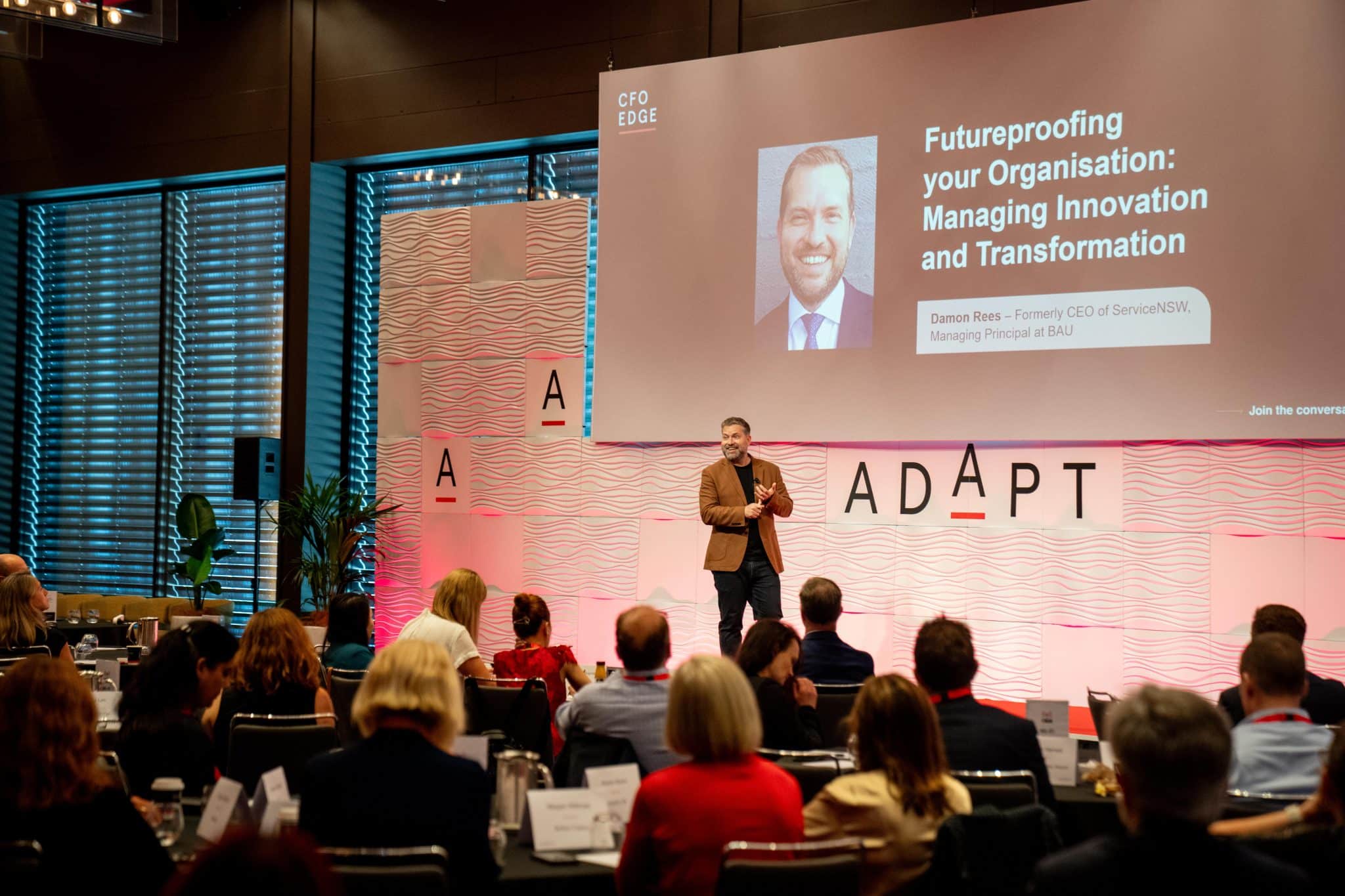Engaging the Workforce for a Resilient Future
It will be critical for leaders to understand the need for over-reliance on top performers, existing practices around delegation and the ownership of work.
How can we engage the workforce for a resilient future?
“With increased time spent at home and associated parental and family responsibilities, limited social interaction, and increased virtual communication, employees may begin to experience fatigue and saturation.
It will become imperative for CIOs, CTOs and operations leaders to work closely with HR to assess possible solutions for any psychological stresses caused by these new ways of working and living.”
ADAPT Advice
It will be critical for leaders to understand the need for over-reliance on top performers, existing practices around delegation and the ownership of work.
It is also crucial to reconsider productivity monitoring metrics to ensure that less productive employees are not overshadowed and overcompensated by highly productive ones.
Organisations must understand what worked best in gaining employee trust during the crisis and implement those practices on a permanent basis to create the new organisational culture.
Employee Well-being
As the pandemic took hold, many companies experienced the fastest and most effective workplace transformation ever seen.
Employees were successfully transitioned to remote ways of work in ways previously thought unthinkable before the pandemic.
On the other hand, many organisations had to let go of their workforce instead. According to part two of the ADAPT COVID-19 survey, about 24% of organisations lost between 11%-25% of their employees while 4% let go of more than 25% of their workforce.
As a result, the overall dependence for work has shifted to fewer employees, and in most cases, on the top performers.
Spend on well-being increases
One of the biggest developments has come in the way funds are now allocated to employee mental health.
Over three-quarters of organisations said they are increasing investment in mental health and well-being programs.
With increased work stress and ongoing uncertainty, these investments will increasingly become embedded into long term corporate budget planning.
Leaders step-up to support teams
Staying in touch with people is critical. I have a 15-minute meeting with my immediate team every single morning, as well as a weekly update to the entire technology team, keeping them both updated and connected.” – John Hunt, CIO of Woolworths.
Leaders have increasingly understood the need to check-in on their teams and provide constant support. Most executives shared with ADAPT the fact that a significant proportion of their day was spent on ensuring employee well-being.
This necessitated conversations that could no longer happen within the physical proximities of the workplace.
As a result, the avg. work hours for leadership teams have also shot up by between 11%-25% for 54% of organisations and by more than 25% for 27% of organisations.
47% of respondents believe that the availability of organisational leaders has improved significantly during the crisis.
The increase in leadership involvement from CEOs to mid-management has resulted in higher engagement as well as higher productivity as employees feel more secure and valued as part of the organisation’s growth conversations.
ADAPT Research
In ADAPT’s “COVID-19 – The Renaissance of Tech Leaders” report (our first report following the outset of lockdown) we cautioned organisations about the possible adverse effects of lockdown.
Our recent survey conducted at the end of Aug-Sep 2020 not only reinforced those concerns but also found the crisis having a significant negative impact on employee well-being.
Despite the realisation for the need for employee well-being and support, employee stress and work-life remain difficult during the crisis.
- 61% of respondents believed they had the capabilities to cope with employee well-being during this time.
- Working hours have increased significantly within 60% of organisations, along with work stress and anxiety.
- Surprisingly enough, productivity and employee engagement have significantly improved for close to 40% of organisations.
- A lot of this is also supplemented by fatigue from video conferencing calls and the need to be available 24/7 owing to digital mode of working.
On the other hand, for 70% of organisations, team bonding has become extremely difficult.
The New World
2020 has forever changed the way businesses operate. As COVID-19 related conditions unfolded, employee safety took precedence over everything else, compelling organisations to create a distributed digital workplace within weeks. However, as they learned to live through the crisis, organisations realised the gaps in current business models, operational processes, technology infrastructure and emotional support required for their employees to work efficiently in the environment.
As we sail into the unchartered seas of 2021 with some of the biggest questions facing executives:
- What will the new workplace look like?
- How can we engage the workforce for a resilient future?
- What must change forever?
Since the beginning of April 2020, ADAPT has conducted two in-depth surveys to understand organisational response, resilience, and recovery strategies as we live through the pandemic. Both studies include over 220 executive leaders from the largest organisations across the country and discuss their continuing responses to ongoing challenges.
The latest survey, conducted in August and late September, uncovered key findings that address some of the above questions and highlight some of the most important paradigms of the new world.
At ADAPT, we have defined ’Nine paradigms for an extra- ordinary world’, but for this report, we only will delve into three – Workplace Design, Employee Well-being, and Reimagining Leadership.
We only have a semblance of what the new world will look like, but we can see that it will be bigger than the individual, organisations and economies. Even though we can only work with what we know today and the acknowledgement that it will change tomorrow, organisations still have the power and authority to create the new world rather than waiting for time to unfold it.
ADAPT’s nine paradigms will help you build a crucial resilience that will set the new foundations for your business, processes, people, and systems. In coming months, we will be revealing more statistics about the other areas within the nine paradigms for our community and businesses. Together, the nine provide a framework for creating a COVID-normal environment that will persist into the post-COVID landscape and help stimulate continued growth.



















